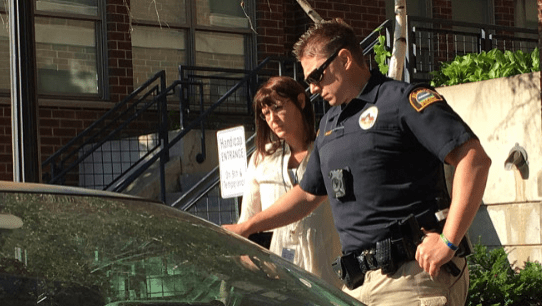
St. Paul police end mental health unit with embedded social workers as city plans new approach
The St. Paul Police Department has ended its mental health unit, as the city plans an approach it says will be more comprehensive.
The Community Outreach and Stabilization Unit (COAST) embedded behavioral health practitioners with a handful of police officers beginning in 2018. They generally did not respond to in-progress police calls, but followed up to calls that involved mental health and/or chemical dependency. The idea was that by providing people with referral to social services, they could be stabilized before another crisis led to a 911 call.
The police department had contracts for the practitioners and did not renew funding when it expired recently. The city says it plans to launch a new program at the start of next year.
The COAST unit “kept growing and growing in the idea of what it could do,” Police Chief Axel Henry said. “Simultaneously, we realized that many of these things are not what the community wants us to do, and … what the service requires is (not) really a police issue.”
The city of St. Paul and Ramsey County already have various programs that work with people experiencing mental health issues, chemical dependency, homelessness or a combination of those factors.
The city hopes to launch an initiative called Familiar Faces, which would include in-house social workers, in January. It will be directed toward people who police officers, paramedics or EMTs and emergency room staff see so often they become familiar faces.
“Our system sees them over and over and over again — one, at very high cost, but two, at a suboptimal level of efficiency,” said Mayor Melvin Carter.
St. Paul has received $3.7 million in state and federal grants, and another $6 million from the U.S. Department of Housing and Urban Development to build and run a service-orientated facility, according to the city. The city intends that Familiar Faces will operate this program in a part of the Catholic Charities Twin Cities space, adding to a coalition of programs and providers working together to meet community needs.
City looking at what happens after crisis response
Familiar Faces “would allow for direct, cross-department communications to right size the approach to the need,” according to a statement from the city.
St. Paul already operates the Homeless Assistance Response Team based in the Department of Safety and Inspections and a mobile crisis response unit through the fire department; there was previously the COAST unit.
The programs in various departments “all grew out of necessity, but now we realize that really the right answer is probably to merge all of them together in one big unit, so they’re co-housed together, they operate together,” Henry said.
The police department contracted with People Incorporated Mental Health Services for embedded mental health professionals for about $730,000 and with Ramsey County for about $582,000 between 2019 and this year; they were primarily grant funded, according to the police department. Henry said he didn’t think it was prudent to renew the contracts for the COAST unit since plans are underway for a different approach.
Familiar Faces is looking at what should happen after police or paramedics are called to a situation, if law enforcement action or emergency medical attention aren’t needed.
“There may be a crisis response that needs to happen first … but then what happens once you secure that situation?” said Deputy Mayor Jaime Tincher.
NAMI (National Alliance on Mental Illness) Minnesota’s executive director said she’s concerned there’s a gap between what Familiar Faces will offer versus the COAST unit. Sue Abderholden said she hadn’t been informed of what’s being planned, and she hopes the city is consulting with mental health providers. She also wants to ensure the city is making plans to protect mental health information.
The COAST unit had one sergeant and three officers; there had been one sergeant and seven officers at its peak, said Deputy Chief Pamela Barragan. There were three clinicians working with them.
An officer and clinician would visit people after an emergency call involving mental health and/or chemical dependency.
People Incorporated’s embedded professionals aimed to build rapport with people and provide direct services, including completing an assessment or evaluation that could be used for treatment for mental health or substance use disorders, said Mike Turpin, the nonprofit organization’s chief administrative officer and general counsel.
Related Articles
Father charged with manslaughter in 3-year-old son’s fall from window in Brooklyn Center apartment
Girl, 16, killed in hit-and-run in downtown Minneapolis; driver arrested, police say
Injured man found in burning house in Frogtown, St. Paul Fire Department says
Fearing the worst, schools deploy armed police to thwart gun violence
‘License plate flippers’ help drivers evade police, tickets and tolls
After St. Paul police started their unit, People Incorporated also worked with Coon Rapids and Blaine, though the two police departments have since brought the mental health work in-house, Turpin said. The organization continues to work with Roseville police.
The St. Paul COAST clinicians managed 1,774 cases last year — those arose after police calls and also from referrals from community groups and others. They handled an average of 1,706 cases annually in the preceding five years, according to numbers from the police department.
The previous unit’s sergeant and one officer continue working as behavioral health liaisons in the police department. They forward information from police calls to mental health professionals for potential follow-up, and they notify officers for safety about mental health calls they may be called to.
